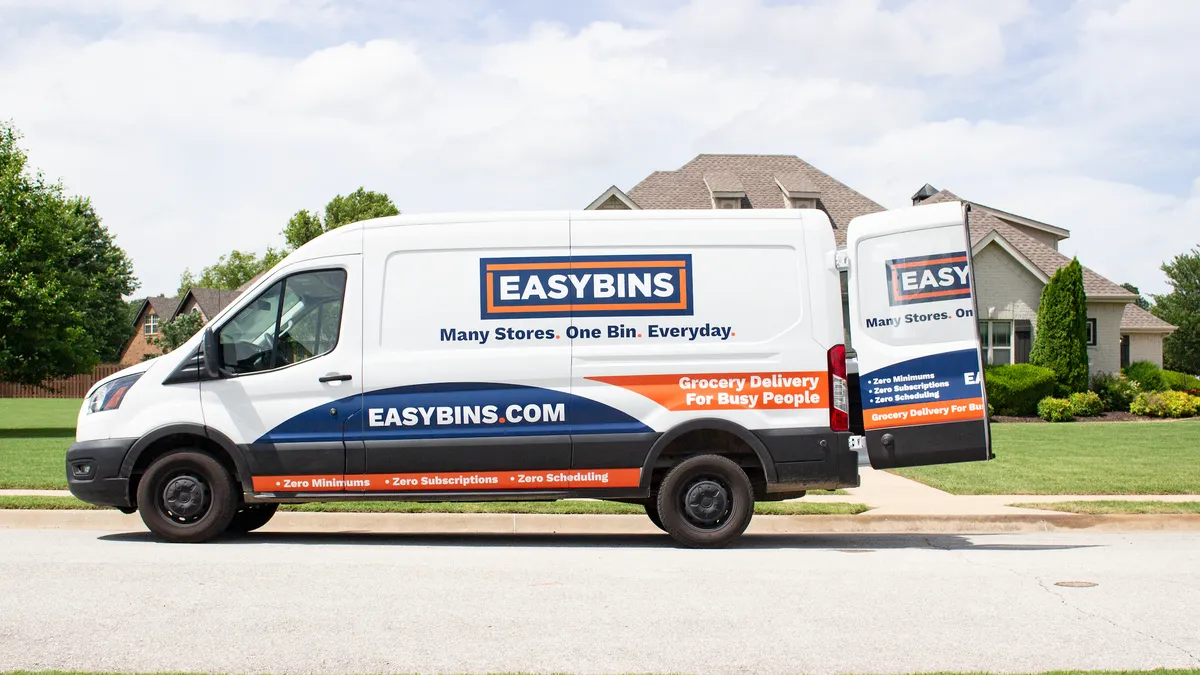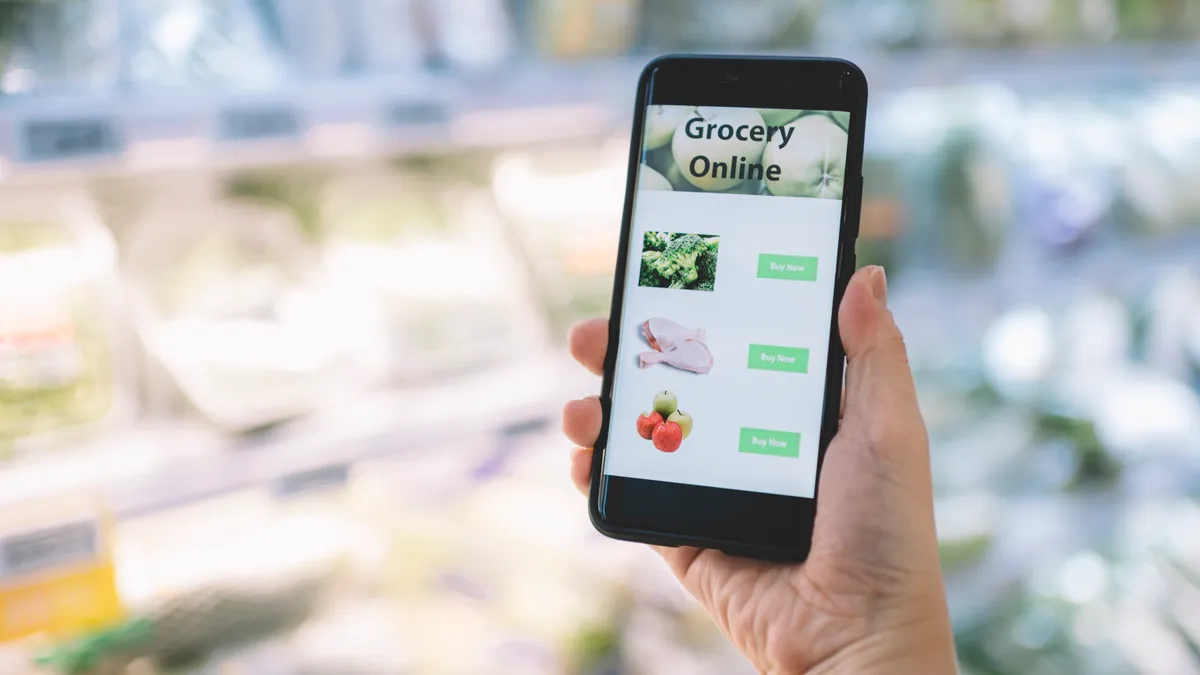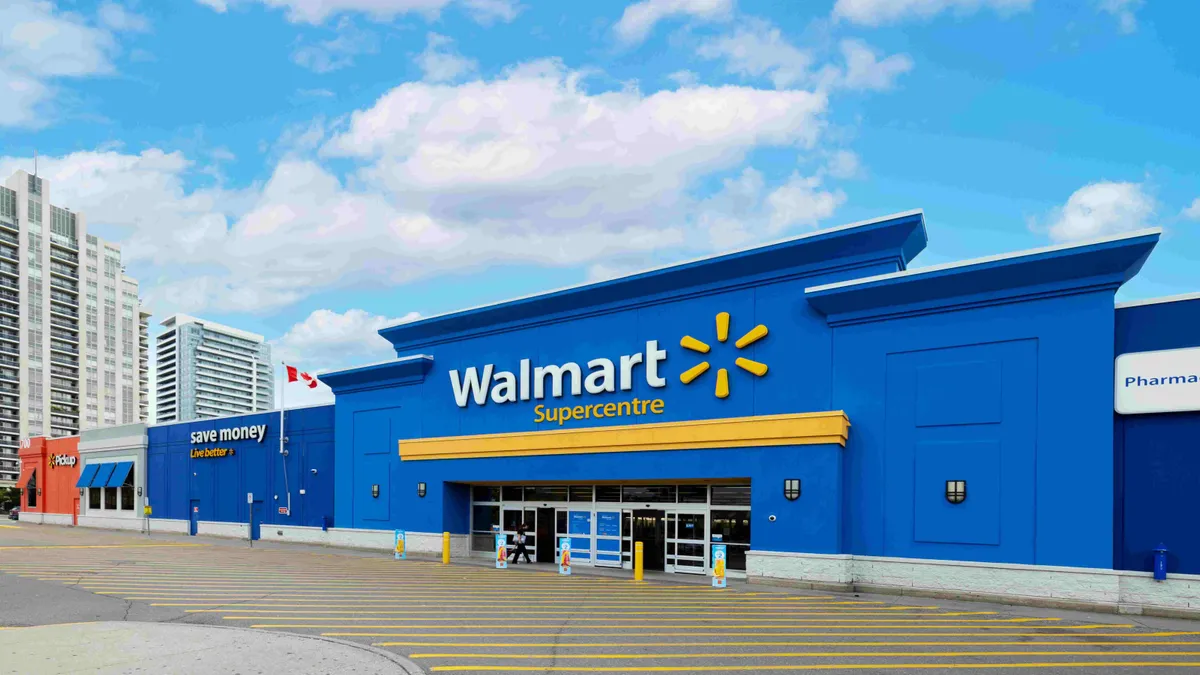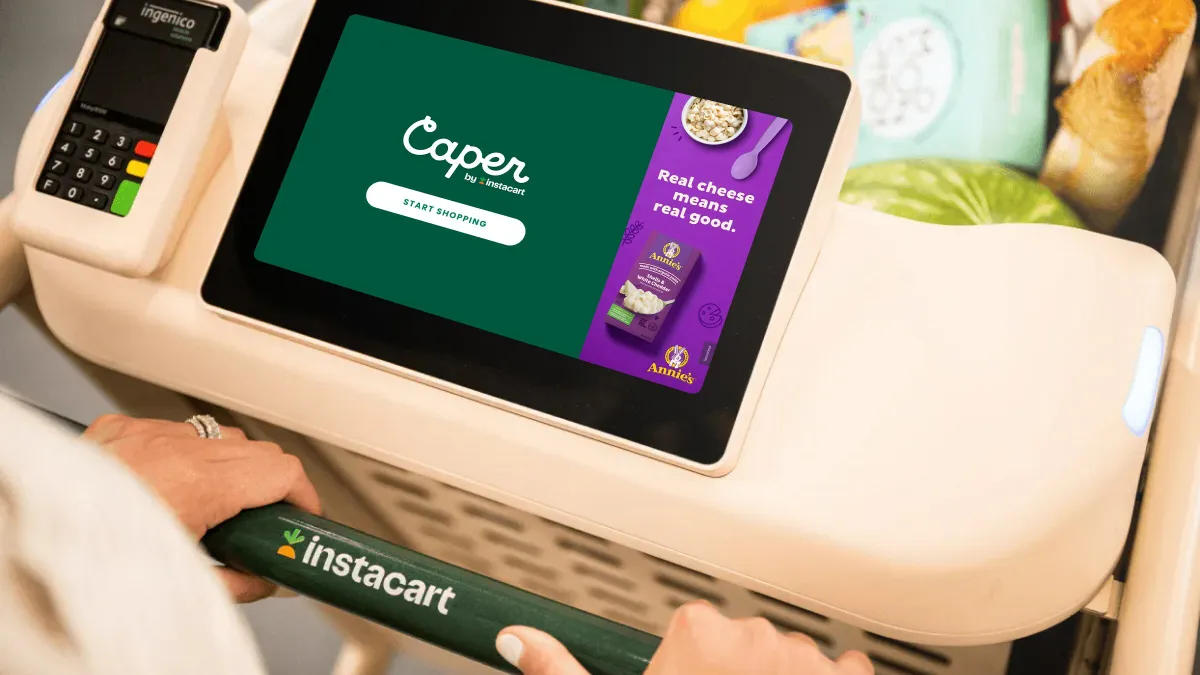What if online shoppers could grab their produce from Whole Foods Markets, personal care products from Target and a smattering of Simple Truth products from Kroger, and get them all delivered in one order?
That’s the concept behind EasyBins, a grocery delivery service that’s quietly building momentum in the heartland. Like Instacart and Shipt, the company allows consumers to shop online from numerous grocery chains. Unlike these and other online marketplaces, the Arkansas-based startup lets shoppers bundle items across multiple retailers into one order, then get everything delivered to their doorstep in one box.
EasyBins, which currently operates in eight central U.S. markets and plans to triple its market penetration this year, doesn’t whisk orders to customers’ doorsteps as quickly as most on-demand providers do. Users can choose from one of two set delivery slots: In the evening, if they put their order in before noon, or in the early morning hours if they order by 10 p.m. the previous day.
But at a time when rapid delivery companies are running out of gas, a service that’s less focused on speed and more focused on selection and efficiency seems increasingly on-trend. James Farmer, founder and CEO of EasyBins, said his target consumers are busy suburban families that prioritize a wide assortment, reasonable prices and convenience. They’re the consumers, he said, that might not be regularly ordering groceries now, but would if the offer was right.
“Our target market is dual income [families with] kids. Mom and dad are both working and tend to be away from the home anywhere from 12 to 15 hours a day,” said Farmer, whose background is in accounting and formerly co-owned retail services firm The Harvest Group.
The company’s multi-retailer approach also more accurately reflects the fact that most consumers shop at more than one store, he noted. More than 60% of orders placed on EasyBins contain products from more than one grocer.
To make cross-shopping grocery stores seamless for users, EasyBins has implemented a complex picking and routing network that operates more like a factory assembly system than personal shopping. Company workers post up at specific stores to pick products as orders come in, then ferry them to a small cross-dock facility where everything gets assembled into customer orders.
Those orders are put inside hard plastic boxes that each contain three temperature zones and are then piled onto a company truck in time for the early morning or evening delivery routes.
This assembly process resembles the zone picking process that retailers are employing inside stores and warehouses. Farmer said the process is more cost-effective because it maximizes labor and volume, with a focus on payloads of orders rather than individual ones.
“If you look under the hood, our business looks a bit more like FedEx than Instacart,” said Farmer.
The company doesn’t have any official partnerships with the retailers it lists, which in most markets includes a mix of retailers including specialty, traditional, club and discount stores. In five markets, EasyBins delivers from Trader Joe’s, which famously doesn’t offer online shopping through any official channels. Farmer said EasyBins relies on third-party data and its workers to keep store listings updated.
EasyBins doesn’t have order minimums or charge a delivery fee, and makes money by adding a small premium to the products it lists. The company’s average order is around $54, and customers use the service on average 1.2 times per month, said Farmer.
To date, EasyBins has raised $6.7 million through several funding rounds, according to Crunchbase. In April, the company received a $400,000 investment from the Arkansas Venture Capital Development Fund.
‘We will ignore the coasts’
EasyBins began delivering in Northwest Arkansas in late 2017 and now operates in several additional markets, including Central Arkansas; Tulsa, Oklahoma; Wichita and Topeka, Kansas; Kansas City; and Fort Collins, Colorado. Farmer said the company aims to triple its number of markets over the next several months, with launches planned in Indiana, Kentucky and Tennessee.
He noted EasyBins has no plans to tackle the coasts and other markets where e-commerce competition has grown fierce.
“Our expansion strategy is focused on creating something like a smile across the country,” he said, referring to the markets it plans to fill in on a map. “We will ignore the coasts, Texas and Florida, because... there’s a lot of noise there already.”
Although EasyBins’ ability to consolidate items across multiple retailers is unique, it’s by no means the only company that’s looking to grow online grocery beyond major cities and affluent consumers by focusing on efficiency, reliability and assortment. Kroger’s new delivery service is powered by large, automated fulfillment centers and spoke sites built to drive volume and order accuracy. Farmstead, the San Francisco-based online grocer, is trying to reach mass-market households in areas like Charlotte and Raleigh-Durham, North Carolina.
Industry research has shown that consumers like the idea of getting their orders as quickly as possible, which challenges the approach that EasyBins, Kroger and others are taking.
But studies have also shown that speed is not the only quality they’re looking for — and may not be the most important factor influencing their online ordering. According to research published last year in the MIT Sloan Management Review, shoppers are willing to wait 10.8 hours longer to receive their orders if it means they can narrow their delivery window by an hour.
Farmer acknowledged that EasyBins faces numerous challenges as it expands, the biggest one being the pace of change among retailers and direct competitors in online grocery. Will its multi-grocer ordering model continue to provide an edge as companies like Walmart improve the shopping experience, expand services and enhance their digital memberships?
“There are some really big companies out there doing great things and improving those consumer pain points very quickly,” he said.
Nailing the user experience is also tricky since EasyBins wants to promote cross-shopping but also make it easy for shoppers to search through retailer-specific inventory. “What we're seeing more and more from the customers is that they still want that experience of being able to click into the store and search within the store,” Farmer said.
Not having official partnerships with retailers could potentially hinder EasyBins, as well, since plugging into store systems could improve inventory accuracy on its platform. Farmer said substitutions aren’t a pressing concern, since the company is often able to find replacement items at the other stores it’s already shopping.
EasyBins isn’t the only e-commerce firm that’s not waiting on official partnerships with retailers before moving forward. DoorDash, for one, has delivered from Target stores without an official tie-up.
Farmer did note that EasyBins is starting to talk to retailers informally. He said both sides are encouraged by the way the company can expand stores’ trade areas.
“We’re taking a wait-and-see approach because a lot of things are changing in this space, and what the retailers are most interested in is moving around a lot,” Farmer said. “But we’re definitely letting them get to know us a bit.”





















